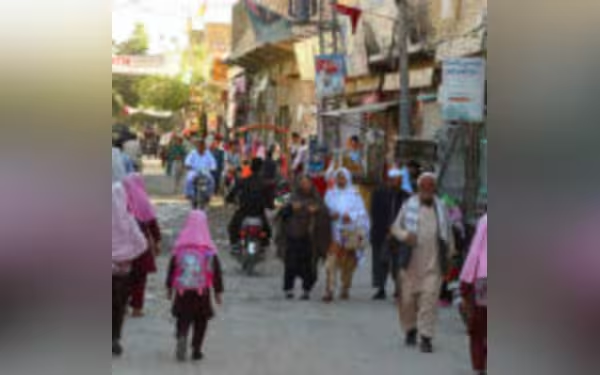Saturday, November 16, 2024 07:48 PM
Poverty Alleviation Efforts in Balochistan
- 71% of Balochistan's population lives below the poverty line.
- Balochistan faces unique challenges contributing to high poverty rates.
- Government initiatives aim to improve infrastructure and services.
 Image Credits: pakistantoday
Image Credits: pakistantodayBalochistan faces severe poverty challenges, with 71% living below the poverty line. Government initiatives aim to improve infrastructure and services.
Poverty is a complex issue that affects many people around the world, and in Pakistan, it is particularly severe in the province of Balochistan. Poverty is not just about not having enough money; it also means lacking access to essential services like education and healthcare, as well as having little say in political matters. In Balochistan, a staggering 71 percent of the population lives below the poverty line, making it the poorest province in the country. This situation is alarming and calls for immediate attention and action.
According to the World Bank, about 39.4 percent of Pakistan's total population lives in poverty. When we compare this with neighboring countries like India and Bangladesh, the situation in Pakistan appears even more concerning. For instance, India has successfully reduced its poverty rate from 21.9 percent in 2011 to 13.4 percent in 2020. Similarly, Bangladesh has seen a drop from 31.5 percent in 2010 to 24.3 percent in 2021. In contrast, Pakistan's progress has been slow, primarily due to political instability and governance issues.
Balochistan, which covers 44 percent of Pakistan's land area, faces unique challenges that contribute to its high poverty rate. The province is geographically isolated, has poor infrastructure, and experiences socio-political unrest. These factors create a cycle of poverty that is hard for residents to escape. Recent studies indicate that Balochistan accounts for about 12-14 percent of Pakistan's total poor population, highlighting the urgent need for targeted interventions.
Several reports shed light on the dire situation in Balochistan. The Pakistan Institute of Development Economics estimates that nearly 51 percent of households in the province live below the income poverty line. Furthermore, the Pakistan Multidimensional Poverty Index Report 2022 reveals that 71 percent of Balochistan's population lives in multidimensional poverty, which includes various deprivations beyond just income. The Pakistan National Human Development Report 2020 also shows that Balochistan is disproportionately represented among the poorest 20 percent of the population.
In response to these challenges, the Balochistan government launched a five-year initiative in 2022 aimed at improving water security, energy sufficiency, infrastructure, connectivity, and agricultural development. However, progress has been slow, particularly in major cities like Quetta and Gwadar, where projects have faced delays due to funding and power supply issues.
Urbanization in Balochistan is another significant hurdle, with only 14.38 percent of the population living in urban areas. The largest cities have not expanded enough to accommodate their growing populations, which hampers economic development. Despite being rich in natural resources, such as minerals and rangelands, the province struggles with low household incomes and limited job opportunities.
To address the energy crisis, it is crucial to establish reliable energy sources and improve road infrastructure. This will not only support local production but also enhance connectivity for sectors like tourism and agriculture. Additionally, improving air connectivity by upgrading airports in Balochistan is essential for better access and economic growth.
Moreover, Balochistan has great potential for agricultural development. By expanding arable land and adopting modern farming techniques, the province can boost agricultural output and create jobs. Both federal and provincial governments must work together to fund strategic projects and streamline development processes.
Addressing poverty in Balochistan requires a multifaceted approach that includes improving infrastructure, enhancing access to services, and fostering economic opportunities. It is essential for both the government and local communities to collaborate and implement effective strategies to break the cycle of poverty. Only through concerted efforts can Balochistan hope to achieve sustainable development and improve the quality of life for its residents.













